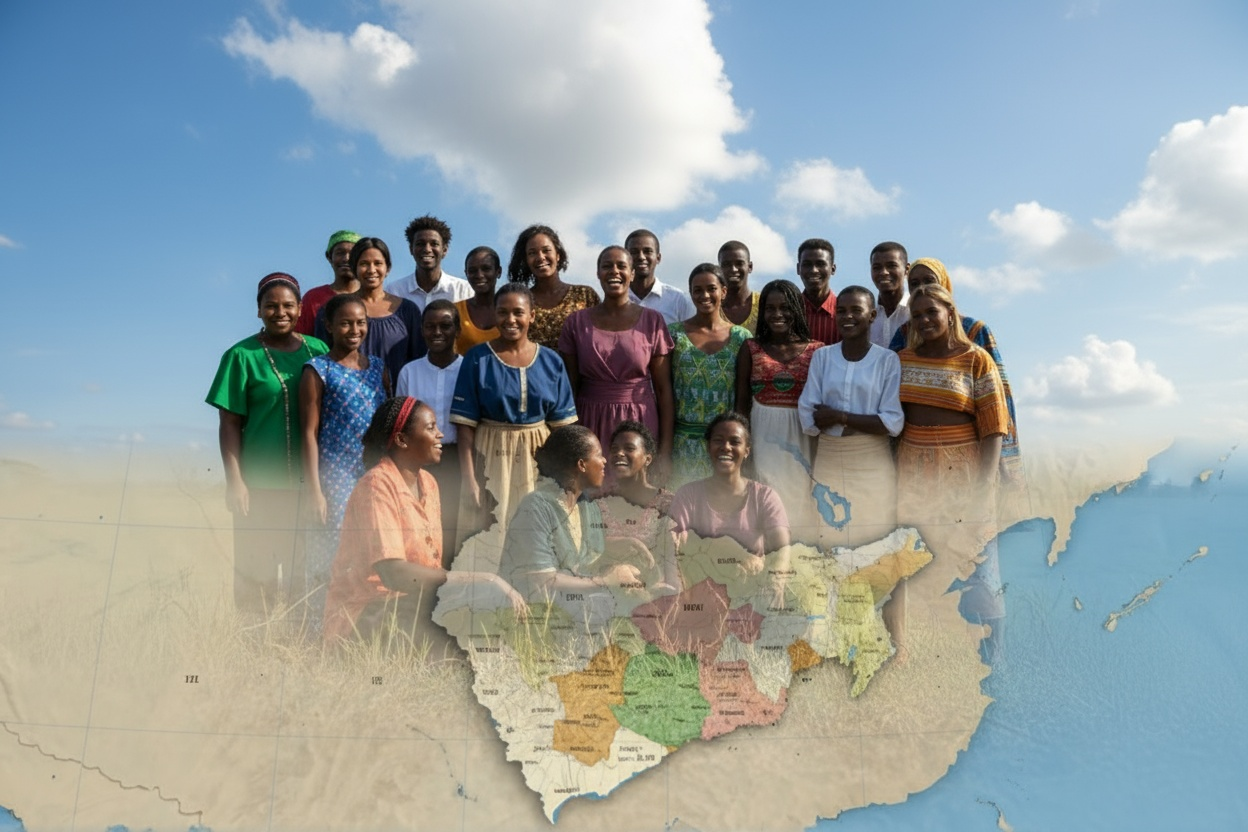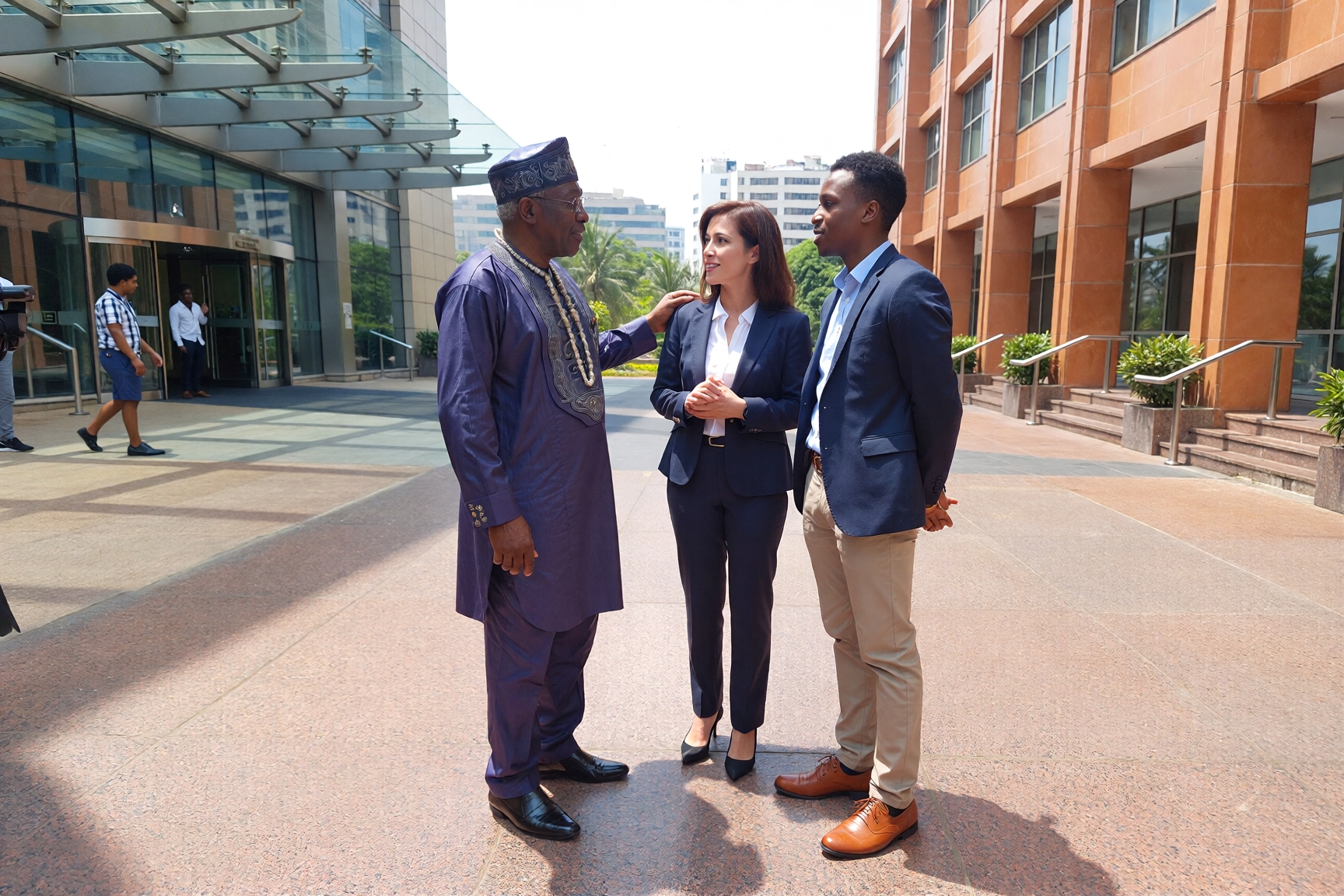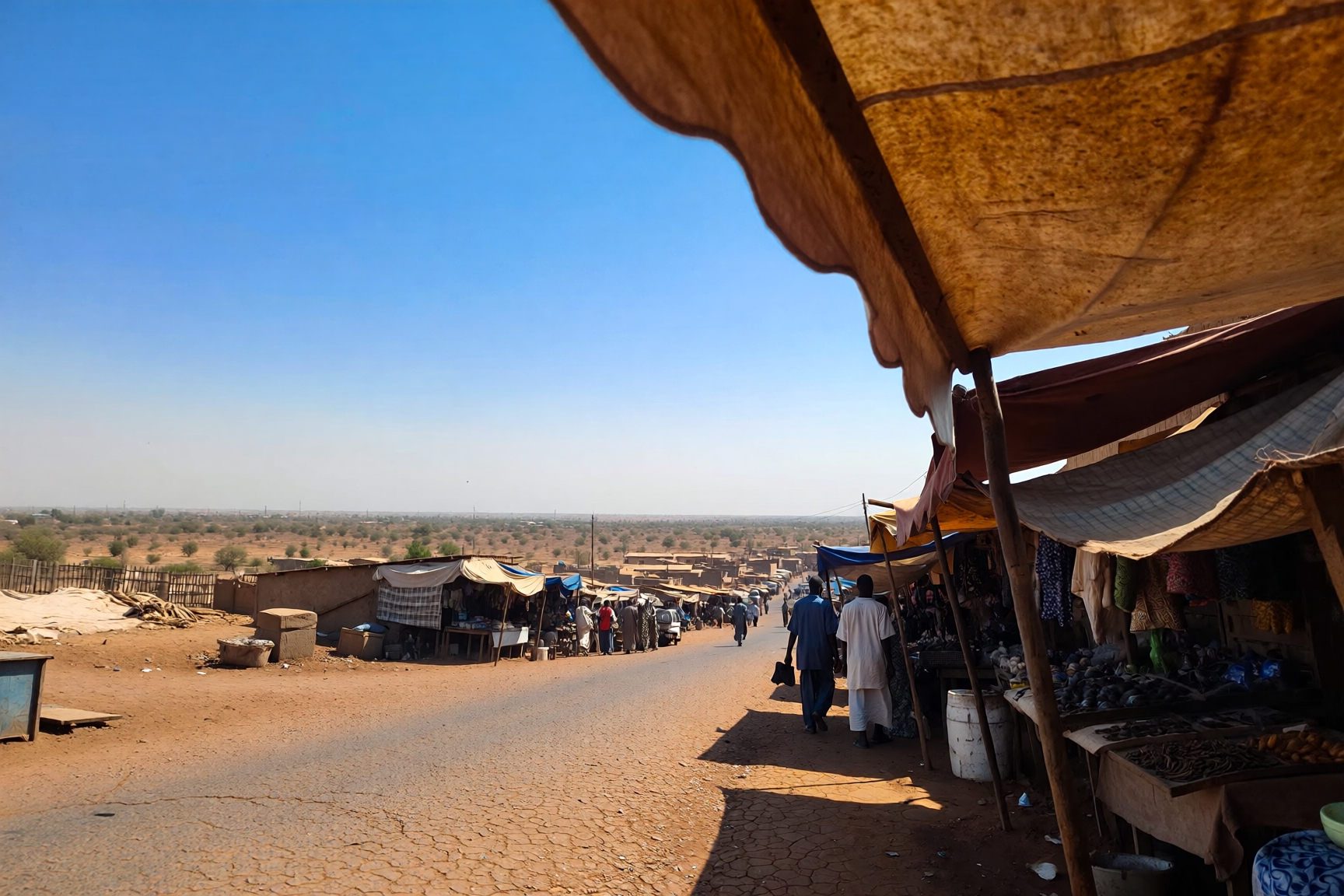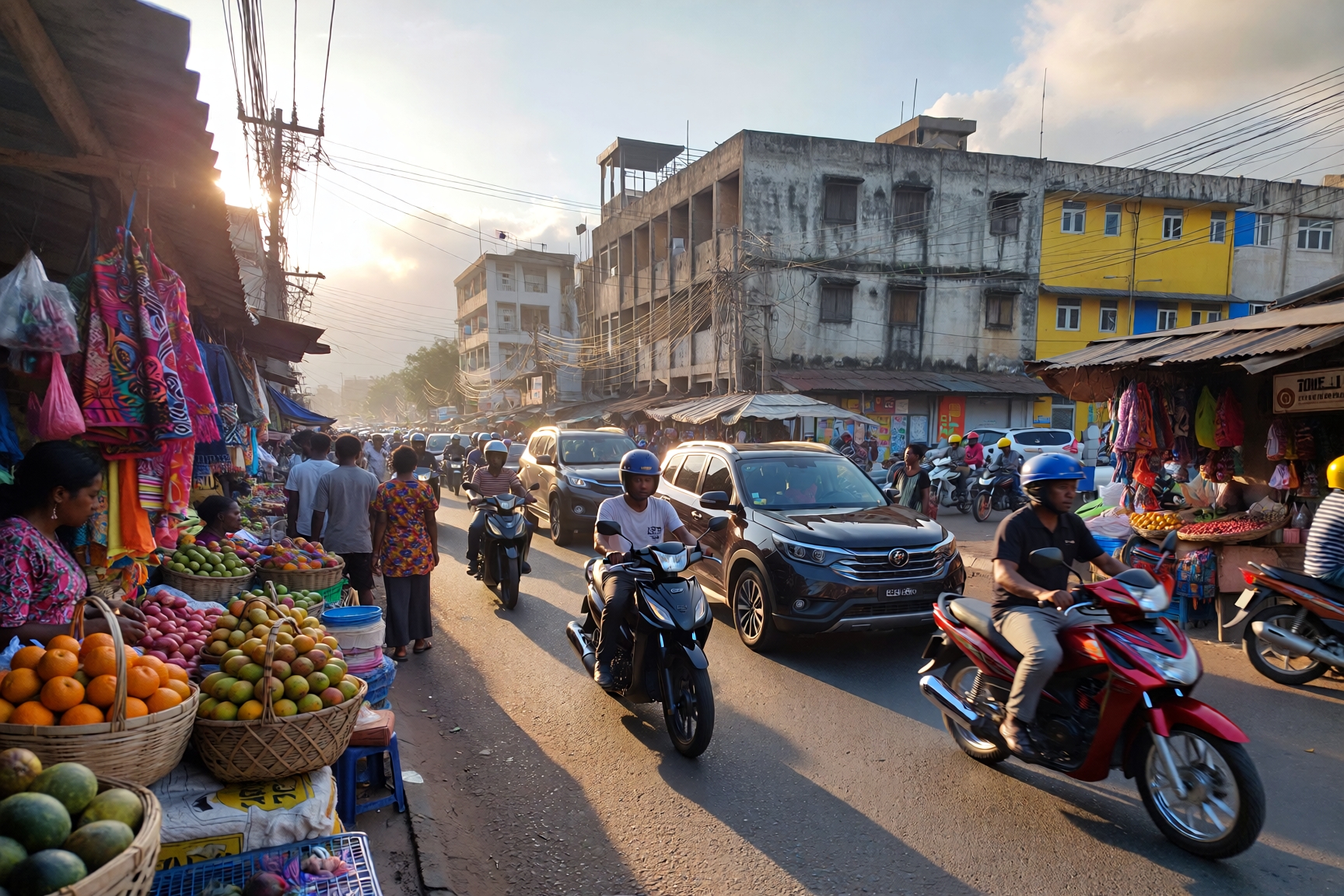Welcome to this fascinating journey through Nigeria’s incredible ethnic tapestry! After months of researching census data, historical records, and cultural documentation, combined with years of experiencing the rich diversity of Nigerian communities firsthand, I’m delighted to share these insights about how many tribes are there in Nigeria.
If you’ve ever wondered about the sheer scale of Nigeria’s cultural diversity, you’re in for quite a revelation. The question of how many tribes exist in Nigeria opens up a conversation about one of Africa’s most ethnically diverse nations, where hundreds of distinct groups have coexisted for centuries, each contributing unique traditions, languages, and customs to the national fabric.
Discovering Nigeria’s Largest Ethnic Groups
Let me tell you something rather fascinating. When most people think about Nigerian tribes, they immediately picture the ‘big three’. And they’re not wrong to do so!
The Hausa-Fulani dominate Northern Nigeria and represent about 29 per cent of the population. I remember my first trip to Kano, where the ancient city walls still stand as testament to centuries of Hausa civilization. The emirate system, the elaborate traditional ceremonies, the beautiful Hausa language with its Arabic influences – it’s quite something to witness.
What makes the Hausa-Fulani particularly interesting is how two distinct groups merged through centuries of intermarriage and shared Islamic faith. The Hausa were the original settlers, whilst the Fulani arrived as nomadic cattle herders from the Senegal region. Today, they’re so intertwined that we often refer to them collectively.
The Yoruba people make up approximately 21 per cent of Nigeria’s population. Concentrated in the South-Western states, they’ve built some of Nigeria’s most cosmopolitan cities, including Lagos – Africa’s largest metropolis. According to the Nigerian Ministry of Foreign Affairs, the Yoruba, along with the Hausa and Igbo, account for around a fifth of the population each.
I’ve always been fascinated by Yoruba culture. The richness of their traditional religion (Orisa worship), the complexity of their political structures with various Obas (kings), and their artistic heritage – from the bronze heads of Ife to contemporary Afrobeats music – showcase remarkable cultural continuity.
The Igbo comprise about 18 per cent of the population. Predominantly Christian and concentrated in the South-East, the Igbo are renowned for their entrepreneurial spirit and republican social structures. Unlike the hierarchical Hausa emirates or Yoruba kingdoms, traditional Igbo society was remarkably egalitarian, with decisions made through councils of elders rather than kings.
After the Nigerian Civil War (1967-1970), which devastated Igboland, the resilience these communities showed in rebuilding their economy was extraordinary. Today, major cities like Onitsha, Aba, and Enugu throb with commercial activity.
How Many Tribes Are in Nigeria? Understanding the Complete Picture
Here’s where things get truly remarkable, and I need you to sit down for this one.
Nigeria is home to 371 distinct ethnic groups. Three hundred and seventy-one! That’s not a typo, and these aren’t just slight variations on the same theme – we’re talking about groups with distinct languages, customs, traditional governance systems, and cultural practices that have evolved over millennia.
Think about that for a moment. In a country roughly the size of Tanzania or twice the size of California, you have 371 different ethnic identities, each with its own story to tell. This extraordinary diversity stems from Nigeria’s complex history, varied geography, and the ancient migration patterns that brought different peoples to settle in this blessed (and sometimes complicated) land.
The National Population Commission has documented these groups through various census exercises, though counting tribes has always been politically sensitive in Nigeria. Each census since independence has sparked controversy, partly because ethnic identity ties directly to political representation and resource allocation.
But here’s something that often surprises people. Beyond the big three, there are several other substantial ethnic groups. The Ijaw in the Niger Delta region number over 14 million people. The Kanuri in the North-East, the Tiv in the Middle Belt, the Ibibio in the South-South – each of these groups has millions of members and rich cultural traditions.
I once attended a cultural festival in Calabar where over twenty different ethnic groups from Cross River State alone displayed their traditional dances, costumes, and cuisine. The variety was staggering. And Cross River is just one of Nigeria’s 36 states!
Nigeria’s Major Ethnic Groups by Population
| Ethnic Group | Approximate Population | Primary Location | Predominant Religion | Primary Language Family |
|---|---|---|---|---|
| Hausa-Fulani | 63 million+ | Northern States | Islam | Afroasiatic/Niger-Congo |
| Yoruba | 46 million+ | South-Western States | Christianity/Islam | Niger-Congo |
| Igbo | 39 million+ | South-Eastern States | Christianity | Niger-Congo |
| Ijaw | 14 million+ | Niger Delta | Christianity | Niger-Congo |
| Kanuri | 7.6 million+ | North-Eastern States | Islam | Nilo-Saharan |
| Ibibio | 10 million+ | Akwa Ibom, Cross River | Christianity | Niger-Congo |
| Tiv | 5 million+ | Benue, Taraba | Christianity | Niger-Congo |
| Fulani | 18 million+ | Northern and Central Nigeria | Islam | Niger-Congo |
| Edo | 3 million+ | Edo State | Christianity | Niger-Congo |
| Nupe | 3 million+ | Niger, Kwara | Islam | Niger-Congo |
The table reveals something crucial about Nigeria’s demographic reality. Whilst the big three dominate numerically, dozens of other groups have populations comparable to entire nations elsewhere in Africa. This depth of diversity makes Nigeria unique even by African standards.
What Are Nigeria’s Top 10 Most Influential Tribes?
Influence in Nigeria doesn’t solely depend on population numbers, though that certainly helps! Let me walk you through the ten ethnic groups that have shaped Nigeria’s political, economic, and cultural trajectory most profoundly.
1. Hausa-Fulani: With political dominance since independence and control over Nigeria’s northern agricultural heartland, their influence extends into every facet of national life. Many of Nigeria’s military and civilian leaders have come from this group.
2. Yoruba: Economic powerhouses concentrated in Lagos and other south-western commercial centres, the Yoruba have produced numerous business magnates, intellectuals, and political leaders. Their cultural export through music, fashion, and art has global reach.
3. Igbo: Despite the setback of the civil war, Igbo entrepreneurial networks span the globe. From Onitsha to Aba, from Lagos to Johannesburg, Igbo traders and businesspeople have rebuilt formidable economic influence.
4. Ijaw: Control over the Niger Delta’s oil wealth has given this group significant leverage. The petroleum industry that provides over 90 per cent of Nigeria’s foreign exchange sits on Ijaw land. Guardian Nigeria has documented how Nigeria’s cultural diversity enriches the nation, highlighting the unique contributions of various ethnic groups.
5. Kanuri: Historical influence through the ancient Kanem-Bornu Empire gives this group gravitas in the North-East. They’ve produced significant political and military leaders.
6. Ibibio: Dominating Akwa Ibom State (one of Nigeria’s major oil-producing states), the Ibibio have considerable economic and political clout in the South-South region.
7. Tiv: As one of the largest ethnic groups in the Middle Belt, the Tiv serve as political kingmakers in Nigeria’s delicately balanced ethnic arithmetic.
8. Edo: The ancient Benin Kingdom’s legacy continues through the Edo people. Their state capital, Benin City, ranks among Nigeria’s most important urban centres.
9. Urhobo-Isoko: These closely related groups in Delta State control significant oil resources and have produced numerous governors, ministers, and business leaders.
10. Nupe: Though smaller in number, the Nupe have historical significance as one of Nigeria’s ancient kingdoms and maintain cultural influence in the Middle Belt.
What’s fascinating is how these groups navigate Nigeria’s federal structure. The country’s political system requires balancing ethnic interests, leading to unwritten rules like rotating the presidency between North and South. It’s rather like an intricate dance where everyone’s watching everyone else’s steps!

Understanding Nigeria’s Different Types of Ethnic Classifications
Now, here’s where things get interesting from an anthropological perspective. Not all Nigerian ethnic groups fit into neat categories, and the ways we classify them reveal much about our understanding of identity.
Major vs. Minority Groups: The conventional classification divides Nigeria’s ethnic groups into “major” (Hausa-Fulani, Yoruba, Igbo) and “minority” groups (everyone else). But this terminology is problematic. Collectively, the so-called minority groups constitute about 42 per cent of Nigeria’s population. That’s hardly a minority! As Guardian Nigeria has highlighted, these groups often face marginalization despite their significant numbers.
Regional Classifications: Another approach groups ethnicities by region. Northern tribes include Hausa, Fulani, Kanuri, and Nupe. Southern tribes divide into South-West (Yoruba, Edo, Urhobo), South-East (Igbo, Igala, Efik), and South-South (Ijaw, Ibibio, Ogoni, Itsekiri). The Middle Belt hosts its own distinct groups like Tiv, Idoma, and Berom.
Linguistic Families: From a scholarly perspective, Nigeria’s tribes fall into three major African language families. The Niger-Congo family (including Yoruba, Igbo, Ijaw, and many others) dominates. The Afroasiatic family includes Hausa and related groups. The Nilo-Saharan family is represented by Kanuri.
Cultural Groupings: Some classifications emphasize shared cultural practices. For instance, the peoples of the Niger Delta (Ijaw, Itsekiri, Urhobo, Ogoni) share similar fishing and trading cultures shaped by the delta environment. The Savanna peoples of the North share cattle-rearing and agricultural traditions.
The Nigerian Educational Research and Development Council has worked to document and preserve this diversity through language development programmes and cultural initiatives.
Here’s something I learned during fieldwork in Plateau State: even within what we consider single ethnic groups, there’s often remarkable internal diversity. The “Igbo” people actually comprise dozens of sub-groups with distinct dialects and customs. Same with Yoruba. The Oyo Yoruba are quite different from the Ekiti or Ijebu Yoruba!
Seven Steps to Understanding Nigerian Ethnic Diversity
- Start with History: Nigeria’s ethnic landscape was shaped by ancient migrations, the rise and fall of empires (Kanem-Bornu, Oyo, Benin, Sokoto Caliphate), the slave trade, and colonial manipulation of ethnic boundaries. Understanding this history explains present realities.
- Learn the Geographic Distribution: Get a map of Nigeria and study where different groups live. Notice how geography influences culture – river peoples differ from savanna peoples, which differ from forest peoples.
- Study the Major Languages: Learning even basic phrases in Hausa, Yoruba, and Igbo demonstrates respect and opens doors. Add Pidgin English, and you can communicate across most of Nigeria.
- Attend Cultural Festivals: Nothing beats experiencing culture firsthand. The Durbar festivals in the North, the Osun-Osogbo Festival in Yorubaland, the New Yam Festival in Igboland, and dozens of others offer authentic cultural immersion.
- Read Ethnic Literature: Nigerian authors from different backgrounds offer windows into their cultures. Chinua Achebe (Igbo), Wole Soyinka (Yoruba), and Zaynab Alkali (Hausa) provide different perspectives on the Nigerian experience.
- Understand the Role of Religion: Christianity dominates the South, Islam the North, with significant minorities of traditional religionists. But even this simple division masks complexity – Yorubaland has substantial Muslim and Christian populations, for instance.
- Engage with Local Communities: Whether you’re visiting for business, research, or tourism, take time to learn about local customs. Ask questions respectfully. Most Nigerians are proud of their heritage and happy to share it.
How Many Tribes Are There in Nigeria? A Direct Answer
Let me answer the primary question clearly and comprehensively, because you deserve the full picture.
Nigeria is home to exactly 371 recognized ethnic groups (tribes), making it one of the most ethnically diverse countries in the world. These groups are spread across Nigeria’s 36 states and the Federal Capital Territory, Abuja.
Here’s the breakdown:
- The three largest ethnic groups (Hausa-Fulani, Yoruba, and Igbo) collectively represent approximately 60-70 per cent of Nigeria’s estimated 230 million population
- Another 10-15 ethnic groups (including Ijaw, Kanuri, Ibibio, Tiv, Fulani, Edo, and Nupe) each have populations exceeding one million
- Over 300 smaller ethnic groups account for the remaining 20-30 per cent of the population
- These groups speak over 500 distinct languages belonging to three major African language families
- Each ethnic group maintains distinct cultural practices, traditional governance systems, religious beliefs, and historical narratives
The diversity extends beyond simple headcounts. Some groups like the Yoruba occupy relatively compact territories, whilst others like the Fulani are spread across multiple states. Some maintain centralized monarchies (the Hausa emirates, Yoruba kingdoms), whilst others have republican structures (traditional Igbo communities). Some are predominantly urban (Yoruba), others remain largely rural (many Middle Belt groups).
This ethnic complexity is both Nigeria’s greatest asset and its most significant challenge. On one hand, it creates extraordinary cultural richness – the music, art, cuisine, literature, and traditions that make Nigeria vibrant. On the other hand, it complicates governance, fuels political competition, and occasionally sparks conflict over resources and representation.
Celebrating Nigeria’s Tribal Diversity: Conclusion
So, how many tribes are there in Nigeria? We’ve established that the answer is 371 distinct ethnic groups, each with its own story, struggles, and contributions to the Nigerian narrative.
But numbers alone don’t capture the magic of this diversity. I’ve danced at Fulani weddings under the stars in Adamawa, tasted pepper soup in Warri prepared by Itsekiri grandmothers who guard their recipes like state secrets, listened to Kanuri elders recite oral histories stretching back centuries, and watched Igbo masquerades that pre-date colonialism by generations.
Nigeria’s ethnic diversity isn’t just statistics or academic classification. It’s the lived reality of millions of people navigating multiple identities – Nigerian, ethnic, religious, regional – often simultaneously. It’s the market woman in Lagos who speaks Yoruba to her neighbors, Pidgin to her customers, English to government officials, and Igbo to her husband. It’s the Abuja civil servant who maintains his village home in Benue State, sends his children to study the Tiv language, yet lives in a multicultural neighborhood. The Guardian Nigeria has explored how traditional practices like facial marks served as cultural identification in various Nigerian tribes.
The future of Nigeria’s ethnic diversity depends on choices we make today. Do we celebrate our differences whilst building shared national identity? Can we distribute resources fairly whilst respecting ethnic homelands? Will younger Nigerians value their ancestral languages and customs, or will globalization erode these traditions?
There’s hope. Despite predictions of imminent collapse, Nigeria has held together for over 60 years of independence. Interethnic marriages increase yearly. Young Nigerians in cities like Lagos create hybrid cultures that draw from multiple ethnic traditions. The entertainment industry – especially Nollywood and Afrobeats – showcases Nigeria’s diversity to the world whilst building bridges domestically.
The key is moving beyond mere tolerance to genuine appreciation. Understanding that the Ijaw fisherman’s worldview differs from the Hausa farmer’s doesn’t make one right and the other wrong. Recognizing that Yoruba social hierarchies contrast with Igbo egalitarianism doesn’t make either superior. Accepting that Nigeria’s 371 ethnic groups won’t think, speak, or behave identically is the first step toward national maturity.
Key Takeaways
- Nigeria hosts exactly 371 distinct ethnic groups with the Hausa-Fulani, Yoruba, and Igbo representing the three largest, collectively comprising 60-70 per cent of the population whilst over 300 smaller groups contribute to extraordinary cultural diversity that makes Nigeria unique even by African standards
- Understanding Nigeria’s ethnic landscape requires moving beyond the “major tribes” narrative to recognize that collectively, minority ethnic groups constitute 42 per cent of the population and control significant economic resources, particularly in the oil-producing Niger Delta and Middle Belt regions
- Nigeria’s ethnic diversity is its greatest asset and its biggest challenge, requiring deliberate policies to balance ethnic interests, distribute resources fairly, promote genuine appreciation of cultural differences, and build shared national identity whilst preserving distinct ethnic heritages for future generations
Frequently Asked Questions About Nigerian Tribes
How many tribes are there in Nigeria?
Nigeria has 371 officially recognized ethnic groups (tribes) spread across its 36 states and the Federal Capital Territory. These groups speak over 500 distinct languages and maintain diverse cultural practices, making Nigeria one of Africa’s most ethnically diverse nations.
What is the largest tribe in Nigeria?
The Hausa-Fulani is the largest ethnic group in Nigeria, comprising approximately 29 per cent of the population (about 63 million people). They predominantly inhabit the northern states and have been politically influential since Nigeria’s independence in 1960.
What are the top 3 largest tribes in Nigeria?
The three largest ethnic groups in Nigeria are the Hausa-Fulani (29 per cent), Yoruba (21 per cent), and Igbo (18 per cent). Together, these three groups represent approximately 60-70 per cent of Nigeria’s total population of over 230 million people.
Are all Nigerian tribes large and well-known?
No, whilst the big three dominate discussions, over 300 ethnic groups have relatively small populations. Some groups number only a few thousand members, whilst others like the Ijaw, Kanuri, and Ibibio have populations exceeding 5-14 million people.
What language do all Nigerian tribes speak?
English serves as Nigeria’s official language and lingua franca, enabling communication across ethnic groups. However, Nigerian Pidgin English is more widely spoken informally, whilst each ethnic group maintains its indigenous language for cultural and community communication.
Why does Nigeria have so many tribes?
Nigeria’s ethnic diversity stems from ancient migration patterns, varied geography creating isolated communities, the rise of distinct kingdoms and empires, and British colonial policy that amalgamated diverse peoples into one nation in 1914 without regard for ethnic boundaries.
Do Nigerian tribes still practice their traditional customs?
Yes, most Nigerian tribes actively maintain traditional practices including festivals, marriage ceremonies, naming ceremonies, and traditional governance structures. However, these often blend with modern practices and Christian or Islamic religious elements in contemporary Nigeria.
Which Nigerian tribe is the richest?
The Yoruba are often considered the wealthiest ethnic group, particularly in Lagos State where Nigeria’s financial and commercial headquarters are located. However, wealth distribution exists across all ethnic groups, with successful business people from Igbo, Hausa, Ijaw, and other backgrounds.
How do different tribes in Nigeria get along?
Interethnic relations in Nigeria are complex, ranging from peaceful coexistence and intermarriage to occasional conflicts over resources and political representation. Most Nigerians navigate multiple ethnic identities daily, with urban areas showing greater ethnic integration than rural communities.
What role do tribes play in Nigerian politics?
Ethnic identity significantly influences Nigerian politics, with informal power-sharing arrangements like rotating the presidency between North and South. Political parties often balance their tickets ethnically, and ethnic lobbying groups wield considerable influence in resource allocation and policy decisions.
Are there any extinct tribes in Nigeria?
Yes, according to UNESCO, 29 Nigerian ethnic groups have become extinct, whilst another 29 face danger of extinction. Globalization, urbanization, and the dominance of major ethnic groups threaten smaller communities’ languages and cultural practices.
How can visitors respect Nigerian tribal differences?
Visitors should learn basic greetings in local languages, dress modestly in conservative areas, ask permission before photographing people or ceremonies, avoid making tribal comparisons or jokes, show interest in local customs, and recognize that practices vary significantly between communities.






